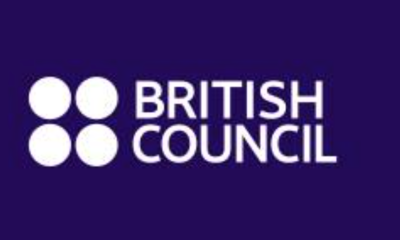Business
Taiwo Oyedele Committee proposes VAT Increases to compensate for tax reforms

The Nigerian fiscal policy committee led by Taiwo Oyedele has proposed sweeping reforms to the country’s Value-Added Tax (VAT) system, including increases in VAT rates on certain goods and services to offset the removal of multiple consumption taxes currently imposed by various states.
These changes are aimed at simplifying Nigeria’s complex tax framework, enhancing business competitiveness, and promoting economic fairness.
The Oyedele-led Presidential Committee on Fiscal Policy and Tax Reforms, after extensive consultations with stakeholders from both the public and private sectors, outlined its strategy in a recent public presentation.
The proposal includes removing several smaller consumption taxes that states levy independently, which often overlap with federal VAT and create a redundant financial burden on businesses and consumers.
According to Taiwo Oyedele, the committee’s chair, who clarified aspects of the reforms via his X (formerly Twitter) handle, stated that the goal was to streamline the tax system.
The committee’s proposal includes significant changes such as the introduction of full input VAT credits for businesses, which would allow them to deduct the VAT paid on services and goods used in production from their tax obligations. This shift is expected to ease cash flow pressures on businesses and stimulate economic activity.
Additionally, the plan calls for the removal of VAT from basic food items, educational materials, and healthcare, which are essential for the lower-income segments of the population.
To counterbalance the potential loss of revenue from these exemptions, the committee proposes a “consequential upward adjustment” to the VAT rate on luxury goods and other non-essential items.
Issues Identified
Experts suggest that this rebalancing act could bolster consumer spending on basic necessities while ensuring that the tax burden is shared more equitably across different income groups.
The proposal also includes measures to promote exports by removing VAT on exported services and intellectual properties, a move aimed at boosting Nigeria’s non-oil exports.
Other suggested reforms include enhancing the VAT refund process and introducing electronic invoicing to curb evasion.
Important to not that the committee’s proposal is not yet government policy but serves as a recommendation to the Nigerian government. It will undergo further review and discussion among policymakers before any legislative action is taken.


 News9 months ago
News9 months agoBritish Council Hikes IELTS Fees in Nigeria: Here’s Why

 Politics7 months ago
Politics7 months agoWhy I want to be the next governor of Kogi State – ADC’s Abejide

 Politics8 months ago
Politics8 months ago“Should Atiku Call Tinubu to Remove Wike as FCT Minister, He Will be Sacked” – Bwala Reveals

 News8 months ago
News8 months agoIt’ll take Nigeria 20 years to produce enough doctors, pharmacists, others – Stakeholders

 News9 months ago
News9 months agoDS Kalu – We Will provide legal framework to boost direct foreign investments

 Business9 months ago
Business9 months agoFG to Fast-Track AfDB’s SAPZ Project to Boost Agricultural Growth

 Investigation9 months ago
Investigation9 months agoNDLEA chiefs accused of N3.7m bribery

 News9 months ago
News9 months agoWoman killed in Benin after overhead water tank collapses





